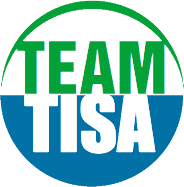What is regulatory transparency?
Regulatory transparency means that when a business wants to trade in another country, the business owners can easily determine what documents and permissions they need in order to begin trading or working in that country. For services such as medicine and law, for example, suppliers must have a license to operate in the field, and requirements to obtain lisences can differ greatly across borders. Other potential regulations include requirements for local management or ownership of a business, restrictions on the form of foreign businesses, or limits on fees and advertising. Businesses need to know about these rules and regulations, and they need to be enforced fairly, to ensure effective operation.
Why is regulatory transparency significant?
Discrimination in obtaining licenses and business permits often prevents firms from establishing operations or outlets in foreign markets.
What problems are associated with regulatory transparency?
If an architecture firm in the US wants to expand their business internationally, they first need to know what the rules are for opening a business in each country. If they can't find all the rules they need to follow, they may be unable to grow in that country, and may even be prosecuted. Therefore, it is essential that these regulations be clear as well as fairly and equally enforced for all groups, both foreign and domestic.
How will TiSA affect regulatory transparency?
One of the goals of TiSA, according to the Office of the US Trade Representative, is to "support the development of strong, transparent, and effective regulatory policies", which will facilitate US service businesses' opportunities to export and create more jobs.
Tags: trade, services, TiSA, international, issues, law
